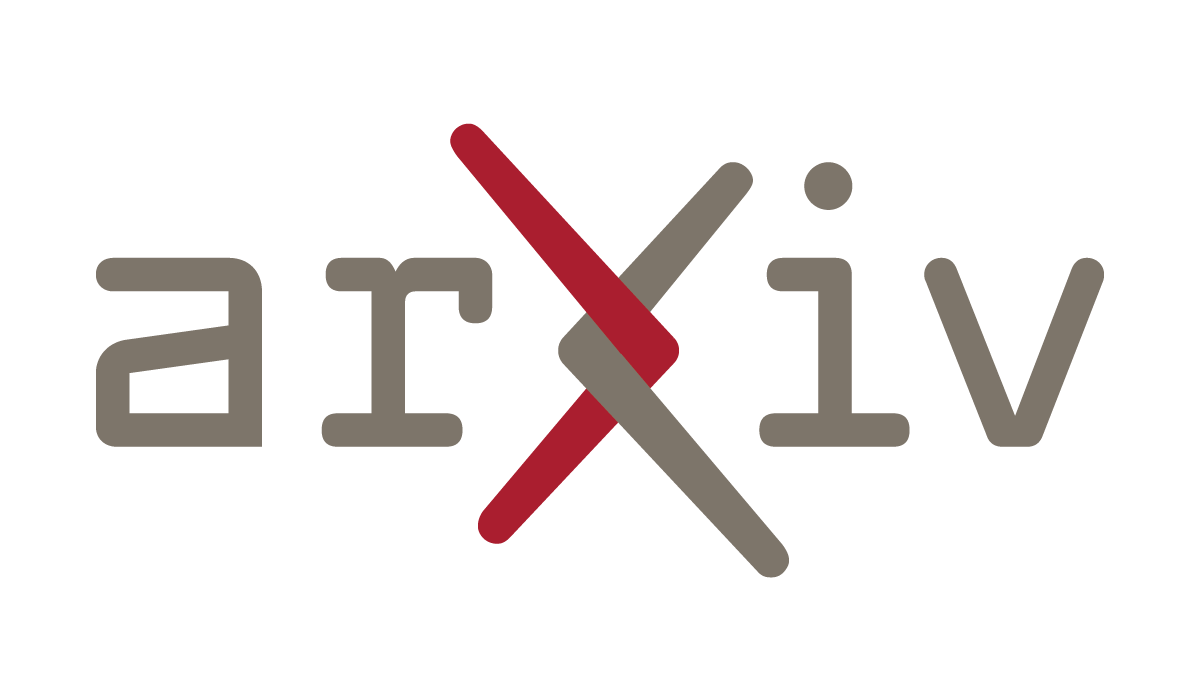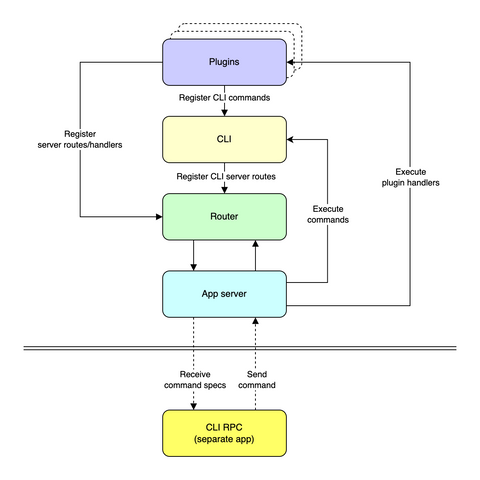Series B, Episode 06 - Trial
LYE: I joined up to see some action.
PAR: More fool you.
LYE: You've been on campaigns, Par.
PAR: I have.
LYE: Done a lot of killing.
PAR: Enough. More. [Bercol and Rontane make their way around the corridor.]
https://blake.torpidity.net/m/206/6
TENET: An Efficient Sparsity-Aware LUT-Centric Architecture for Ternary LLM Inference On Edge
Zhirui Huang, Rui Ma, Shijie Cao, Ran Shu, Ian Wang, Ting Cao, Chixiao Chen, Yongqiang Xiong
https://arxiv.org/abs/2509.13765
Liquid Crystal-Based RIS Loss-Trade-Off Analysis
Bowu Wang, Mohamadreza Delbari, Robin Neuder, Alejandro Jim\'enez-S\'aez, Vahid Jamali
https://arxiv.org/abs/2508.11489 …
Instant prediction of relaxation in moir\'{e} superlattices using neural networks
Aleksei V. Belonovskii, Elizaveta I. Girshova, Erkki L\"ahderanta, Mikhail Kaliteevski
https://arxiv.org/abs/2509.13147
Finally approaching #MuniHac, where I will talk about teaching Functional Software Architecture on Sunday.
https://munihac.de/2025.html
Series B, Episode 12 - The Keeper
VILA: What? I don't ...
GOLA: [To henchman] and Master of the Duel - you!
TARA: It is written he will kill you.
GOLA: You called him back, didn't you?
TARA: Yes I did.
GOLA: Why?
https://blake.torpidity.net/m/212/479 B7B…
NuGraph2 with Context--Aware Inputs: Physics--Inspired Improvements in Semantic Segmentation
Vitor F. Grizzi, Margaret Voetberg, Giuseppe Cerati, Hadi Meidani
https://arxiv.org/abs/2509.10684
Symmetry-Constrained Multi-Scale Physics-Informed Neural Networks for Graphene Electronic Band Structure Prediction
Wei Shan Lee, I Hang Kwok, Kam Ian Leong, Chi Kiu Althina Chau, Kei Chon Sio
https://arxiv.org/abs/2508.10718
Lung Infection Severity Prediction Using Transformers with Conditional TransMix Augmentation and Cross-Attention
Bouthaina Slika, Fadi Dornaika, Fares Bougourzi, Karim Hammoudi
https://arxiv.org/abs/2510.06887
Comparative Analysis of Attention Mechanisms for Automatic Modulation Classification in Radio Frequency Signals
Ferhat Ozgur Catak, Murat Kuzlu, Umit Cali
https://arxiv.org/abs/2508.09996
A Biologically Interpretable Cognitive Architecture for Online Structuring of Episodic Memories into Cognitive Maps
E. A. Dzhivelikian, A. I. Panov
https://arxiv.org/abs/2510.03286
Machine Learning for Radial Velocity Analysis I: Vision Transformers as a Robust Alternative for Detecting Planetary Candidates
Anoop Gavankar, Tanish Mittal, Joe Ninan, Shravan Hanasoge
https://arxiv.org/abs/2510.07034
#ReleaseFriday — New version 3.1.0 of the recently talked about https://thi.ng/args package, a declarative & functional CLI argument parser & app framework. I updated the arg specifications to be fully self-desc…
Parametric Neural Amp Modeling with Active Learning
Florian Gr\"otschla, Longxiang Jiao, Luca A. Lanzend\"orfer, Roger Wattenhofer
https://arxiv.org/abs/2509.26564 htt…
Mellum: Production-Grade in-IDE Contextual Code Completion with Multi-File Project Understanding
Nikita Pavlichenko, Iurii Nazarov, Ivan Dolgov, Ekaterina Garanina, Dmitry Ustalov, Ivan Bondyrev, Kseniia Lysaniuk, Evgeniia Vu, Kirill Chekmenev, Joseph Shtok, Yaroslav Golubev, Anton Semenkin, Uladzislau Sazanovich
https://arxiv.org/abs/2510…
I-ETL: an interoperability-aware health (meta) data pipeline to enable federated analyses
Nelly Barret, Anna Bernasconi, Boris Bikbov, Pietro Pinoli
https://arxiv.org/abs/2509.22351
Two-Timescale Learning for Pilot-Free ISAC Systems
Jian Xiao, Ji Wang, Qimei Cui, Lihua Li, Xingwang Li, Yingzhuang Liu, Tony Q. S. Quek
https://arxiv.org/abs/2508.17749 https:/…
Series B, Episode 05 - Pressure Point
VERON: No!
GAN: It's all right, it's all right. We won't hurt you. [Hands her pill he has taken from a container.] Take this.
VERON: No.
GAN: Please.
VERON: [Swallows pill] Who are you?
https://blake.torpidity.net/m/205/255
KLAN: Kuaishou Landing-page Adaptive Navigator
Fan Li, Chang Meng, Jiaqi Fu, Shuchang Liu, Jiashuo Zhang, Tianke Zhang, Xueliang Wang, Xiaoqiang Feng
https://arxiv.org/abs/2507.23459
Incentivised Orchestrated Training Architecture (IOTA): A Technical Primer for Release
Felix Quinque, Alan Aboudib, Szymon Fonau, Rodrigo Lopez Portillo Alcocer, Brian McCrindle, Steffen Cruz
https://arxiv.org/abs/2507.17766
Leveraging 3D Technologies for Hardware Security: Opportunities and Challenges
Peng Gu, Shuangchen Li, Dylan Stow, Russell Barnes, Liu Liu, Yuan Xie, Eren Kursshan
https://arxiv.org/abs/2508.19309
QuantMind: A Context-Engineering Based Knowledge Framework for Quantitative Finance
Haoxue Wang, Keli Wen, Yuante Li, Qiancheng Qu, Xiangxu Mu, Xinjie Shen, Jiaqi Gao, Chenyang Chang, Chuhan Xie, San Yu Cheung, Zhuoyuan Hu, Xinyu Wang, Sirui Bi, Bi'an Du
https://arxiv.org/abs/2509.21507
Transversal STAR architecture for megaquop-scale quantum simulation with neutral atoms
Refaat Ismail, I-Chi Chen, Chen Zhao, Ronen Weiss, Fangli Liu, Hengyun Zhou, Sheng-Tao Wang, Andrew Sornborger, Milan Kornja\v{c}a
https://arxiv.org/abs/2509.18294
One-third of Sun-like stars are born with misaligned planet-forming disks
Lauren I. Biddle (The University of Texas at Austin), Brendan P. Bowler (University of California Santa Barbara), Marvin Morgan (The University of Texas at Austin, University of California Santa Barbara), Quang H. Tran (Yale University), Ya-Lin Wu (Taiwan Normal University)
https://
Series C, Episode 09 - Sarcophagus
TARRANT: Wait a minute, Orac-
ORAC: Disconnect. [The glasses tumble off the tray which begins to swoop around in the air.]
DAYNA: I don't believe that.
VILA: Try and convince me, will you? Please?
https://blake.torpidity.net/m/309/228 …
The (C)omprehensive (A)rchitecture (P)attern (I)ntegration method: Navigating the sea of technology
Sebastian Copei, Oliver Hohlfeld, Jens Kosiol
https://arxiv.org/abs/2508.16341
KBest: Efficient Vector Search on Kunpeng CPU
Kaihao MA, Meiling Wang, Senkevich Oleg, Zijian LI, Daihao Xue, Dmitriy Malyshev, Yangming Lv, Shihai Xiao, Xiao Yan, Radionov Alexander, Weidi Zeng, Yuanzhan Gao, Zhiyu Zou, Yao xin, Liu Lin, Junhao Wu, Yiding Liu, Yaoyao Fu, Gongyi Wang, Gong Zhang, Fei Yi, Yingfan Liu
https://arxiv.org/abs/2…
Flexible and High-Performance Radio Access Networks for upcoming Sixth-Generation (6G) Systems
Peter Schefczik, Umar Toseef, Paolo Baracca, Ralf Klotsche, Torsten Dudda, Mai-Anh Phan, Lorenzo Miretti, David Ginthoer, Bin Han
https://arxiv.org/abs/2509.24417
RARO: Reliability-aware Conversion with Enhanced Read Performance for QLC SSDs
Yanyun Wang, Dingcui Yu, Yina Lv, Yunpeng Song, Yumiao Zhao, Liang Shi
https://arxiv.org/abs/2508.19530
Technique-agnostic exoplanet demography for the Roman era - I. Testing a retrieval framework using simulated Kepler-like transit datasets
Akshay Priyadarshi, Eamonn Kerins
https://arxiv.org/abs/2509.24401
Causal Graph Fuzzy LLMs: A First Introduction and Applications in Time Series Forecasting
Omid Orang, Patricia O. Lucas, Gabriel I. F. Paiva, Petronio C. L. Silva, Felipe Augusto Rocha da Silva, Adriano Alonso Veloso, Frederico Gadelha Guimaraes
https://arxiv.org/abs/2507.17016
Crosslisted article(s) found for cs.AR. https://arxiv.org/list/cs.AR/new
[1/1]:
- Quantized Neural Networks for Microcontrollers: A Comprehensive Review of Methods, Platforms, and...
Hamza A. Abushahla, Dara Varam, Ariel J. N. Panopio, Mohamed I. AlHajri
















































